|
8/31/2020 0 Comments Court Applies Twin Conditions u/s 212(6)(II) of Companies Act and Refuses Bail To Ex-CFO of Bhushan Steel LimitedAugust 5, 2020 [2020] 118 taxmann.com 131 (Article)
Authors: DELEP GOSWAMI, FCS, ADVOCATE, SUPREME COURT OF INDIA along with ANIRRUD GOSWAMI, ADVOCATE, NEW DELHI Bhushan Steel – Economic Offences, Allegations of Fraud to the Extent of Rs.45,818/- crore The Delhi High Court was considering the bail application moved by CA Mr. Nittin Johari, ex-CFO and Director of erstwhile Bhushan Steel Limited ("BSL") (since taken over by the Tatas and renamed as "Tata Steel BSL Limited" pursuant to Corporate Insolvency Resolution Process (CIRP) initiated against BSL and sanction to the takeover approved by the Adjudicating Authority (AA) under the Insolvency and Bankruptcy Code, 2016). In para 21 of its judgement dated 27.1.2020 in Re: Nittin Johari v. Serious Fraud Investigation Office (Bail Appln. No.1971/2019)noted that thebail application had to be decided on the basis of its own facts and keeping in mind the proposition of law that economic offences constitute a class apart and need to be visited with a different approach in the matter of bail and since these kind of offences cause irreparable harm to the economic system and, therefore, required to be considered seriously. Brief Facts of the Case Brief facts leading to the present case reveal that investigation into the affairs of Bhushan Steel Limited (BSL) by SFIO has revealed that the ex-promoters/family members, assisted by employees and close associates, used a complex web of 157 companies to siphon off funds from BSL for various purposes and also fraudulently availed of credit from various lender banks and manipulated the books of accounts and financial statements of BSL, causing wrongful loss to Banks and Financial Institutions and public investors of the limited company and causing wrongful gain to the promoters and their family members. The corporate structure of BSL was repeatedly abused for various fraudulent purposes and patently false documents were presented to lending Institutions for availing credit running into thousands of crores. The books of accounts of the company were manipulated and various companies were incorporated for routing of funds in a deceptive manner. Thus, using a complex web of transactions, funds were transferred and the affairs of the accused companies were conducted in such a manner so as to facilitate fraud of massive proportions. It was submitted that the Petitioner was one of the prime perpetrators and master mind behind all the fraudulent activities and thus, in view of the serious nature of allegations and active role played by the petitioner and the offence being an economic one which affects the economy of the nation and twin conditions for grant of bail as envisaged under section 212(6)(ii) of the Companies Act, 2013 were not satisfied and hence the Prosecution submitted that the bail application of the Petition be dismissed. Serious Fraud and Allegations Against the Petitioner As per the Complaint, the Petitioner, who was the ex-CFO and Whole-time Director of BSL, was also a member of the "Committee of the Board of Directors on Borrowing, Investment and Loans". He was allegedly one the main accused and brain behind the entire fraudulent arrangement of availing credit facilities from Bank through Letter of Credit (LC) by filing false documents with various Banks. The LCs were obtained on the basis of false and fabricated documents and that the Petitioner along with other individuals also submitted false documents under his signatures for discounting the LCs including the false and fabricated letters under the name and false signature of Hindustan Zinc Limited or Jindal Steel Works and its authorized signatory. The Petitioner, at the time of opening of the LCs, attached documents, such as proforma invoice/lorry receipts etc. which were not genuine. In most of the cases, the transporter either did not exist or the vehicle number mentioned in the documents turned out to be a two/three wheeler passenger vehicle. Bills of Exchange was neither drawn, nor signed by any of the authorized signatory of Hindustan Zinc Limited and JSW Steel Limited. Documents submitted to the Banks to discount the LCs were signed by various accused persons including the Petitioner. The LC discounted amount was, thereafter, transferred to the account of BSL and was available as a credit to it for the period of the LC. Thus, using the fraudulent deceptive methods, various accused persons, including the Petitioner were able to avail the illegitimate flow of funds amounting to Rs.45,818 crore during the period 2013-14 to 2016-17 from the banks. Investigations also revealed that the figures of "Bill of Exchange payable", "Stock-in-Transit and "Trade Receivable" were manipulated and valuation reports were fraudulently done and based on these reports, false increase in valuation of assets to the extent of Rs.15,000 crores were shown. The Balance Sheet figures were manipulated and allegedly the figure of Rs.10,214 crore was written off to cover up the fraud which was continuously perpetrated from 2013-14 to 2016-17 by various persons including the Petitioner. Supreme Court Remands Bail Application to Delhi HC for Reconsideration The Hon'ble Supreme Court of India vide order dated 12.9.2019 while setting aside the bail order dated 14.8.2019 passed by the learned Predecessor of the Delhi HC has remanded back the matter back to the Delhi HC to re-consider bail application filed by the Petitioner in the light of the principles governing the grant of bail under Section 439 of the Cr.P.C., while also keeping in mind the scope and effect of the twin mandatory conditions for grant of bail laid down in section 212(6)(ii) of the Companies Act, 2013. The bail application was filed by the Petitioner CA Nittin Johari u/s 439 Cr.PC read with Section 212(6) of the Companies Act, 2013 in complaint case No.502/2019 arising out of case No.5/5/2016/CL-II dated 3.5.2016 and file No.SFIO/INV/BPS/2016/480-494 at Serious Fraud Investigation Office (SFIO), wherein the petitioner had been arraigned as an accused in the complaint filed against 284 accused persons under Section 439(2) red with Section 436(1)(a), (d) and (2) r/w Section 212 of the Companies Act, 2013 r/w Section 621(1) of the Companies Act, 1956 r/w Section 193 Cr.P.C. The accused Petitioner was taken into custody on 2.5.2019 and was in judicial custody since then and he was the only accused in custody out of the 284 accused persons. In 1995, the petitioner had joined the BSL as an Assistant General Manager and was thereafter promoted to the post of Chief Financial Officer (CFO) in 2014 and he was the Whole-time Director (Finance) of BSL. In February, 2018 the petitioner had resigned from BSL. Petitioner's Contentions For Seeking Bail On behalf of the petitioner, the learned senior counsel submitted that the petitioner had fully cooperated with SFIO in the investigation and had supplied all the documents and information as and when required. On 2.5.2019, the petitioner was summoned by SFIO via telephone and was arrested without any justification or reasons. On 8.5.2019, the petitioner was remanded to judicial custody, which got extended from time to time. His interim bail application was allowed by the Hon'ble Delhi HC on the medical ground of his mother. However, the petitioner's first regular bail application was dismissed by the learned Special judge on 6.6.2019. Thereafter, charge-sheet was filed before the learned Special judge on 1.7.2019. The Petitioner had filed his 2nd bail application on 12.7.2019, however the same was dismissed by the learned Special Judge on 2.8.2019. The Petitioner's counsel submitted that the investigation in the present case stands completed and even charge sheet has been filed by the Investigating Agency. The present case is based on documentary evidence and banking transactions and as such, there is no possibility of the petitioner tampering with evidence. Further, the petitioner was no longer employed by the company BSL, as the same has already been taken over by the Tata Group pursuant to insolvency proceedings. Other than the petitioner, no other accused was in custody. Considerable time will be taken in the completion of the trial. The Petitioner has roots in the society and is not a flight risk and he has clean antecedents. Besides, the wife of the petitioner has a history of depression and rheumatoid arthritis and is unable to manage the family affairs in the absence of the petitioner. Further, the petitioner himself is a patient of diabetes since the last 25 years and has lost considerable weight due to his illness while in custody. Despite being CEO and a Whole-time Director, the petitioner was only an employee of BSL and has never been a shareholder or signatory of the Accounts of BSL and that no financial benefit has accrued to the petitioner from the alleged fraudulent activities of BSL. The Petitioner had only acted in his professional capacity as CFO of BSL and that the work of the finance department was duly delegated and each person was responsible for his scope of work and that the petitioner was neither aware of, nor involved in the alleged falsification of books or the alleged preparation and use of any forged and fraudulent documentation in any manner. On a number of occasions, the documents which came to the petitioner in the course of his work were already approved by the Board of Directors as well as by the Audit Committee of BSL and there was no reason for the petitioner to suspect any wrong-doing in such decision. Petitioner Challenges Twin Conditions for Grant of Bail in Section 212(6)(ii) of Companies Act, 2013 The Petitioner submitted that both his bail applications had earlier been rejected by the special judge in a routine and casual manner and the submissions recorded on 2.8.2019 were replication of the submissions recorded in the order dated 6.6.2019. The Petitioner next submitted that the conditions of bail imposed under section 212(6)(ii) and 212(7) of the Companies Act, 2013 are completely unreasonable, draconian and contrary to the fundamental tenets of criminal and therefore in the interest of justice, the petitioner deserved to be released on bail. Several decisions of Supreme Court were relied upon in support of the contentions of the petitioner. On behalf of the Investigating Agency, the learned ASG opposed the bail application and submitted that the learned Special Judge had taken cognizance and summoned the petitioner of the offences u/s 36(c), 128, 129, 447, 448 of the Companies Act, 2013; under sections 209 and 211 read with section 628 of the Companies Act, 1956 and under sections 467, 468, 471 read with Section 120-B of the Indian Penal Code vide order dated 16.8.2019. It was further contended that the case against the petitioner squarely falls under the provisions of Section 212(6)(ii) of the Companies Act, 2013 and that Section 212(6) starts with a non-obstante clause and that the conditions stipulated under section 212(6)(ii) are mandatory in nature. Further, as per section 212(7) of the Companies Act, 2013, the limitation on granting of bail specified in section 212(6) is in addition to the limitations under the Code of Criminal Procedure, 1973. The learned ASG further submitted that the Hon'ble Supreme Court vide its order dated 12.9.2019 in criminal appeal No.1381/2019 which was against the order of the learned Predecessor of the Delhi HC has clearly stated that the mandatory conditions of bail as embodied in section 212(6) and 212(7) of the Companies Act, as well as, under Section 439 of the Cr.P.C. have to be satisfied while considering the present bail application. No Straighjacket Forumation for Consideration of Grant of Bail – Observes HC The Delhi HC noted that documents revealed that the Petitioner was actively involved in the fraudulent activities and was instrumental in submission of false and fabricated documents to discount Letter of Credits, preparation of false books of accounts, including Balance Sheet. On the question of decisions cited by the counsel of the petitioner, the HC was of the view that each case has its own peculiar facts and it is a settled law that there is no straightjacket formulation for consideration of grant of bail to an accused. While granting the bail application of the Petitioner, the HC also considered the Supreme Court judgement in State of Bihar & Anr. v. Amit Kumar @ Bachcha Rai, [(2017) 13 SCC 751] wherein has held as under:- "11. Although there is no quarrel with respect to the legal propositions canvassed by the learned counsels, it should be noted that there is no straight jacket formula for consideration of grant of bail to an accused. It all depends upon the facts and circumstances of each case. The Government's interest in preventing crime by arrestees is both legitimate and compelling. So also is the cherished right of personal liberty envisaged under Article 21 of the Constitution. Section 439 of The Code of Criminal Procedure, 1973, which is the bail provision, places responsibility upon the courts to uphold procedural fairness before a person's liberty is abridged. Although 'bail is the rule and jail is an exception' is well established in our jurisprudence, we have to measure competing forces present in facts and circumstances of each case before enlarging a person on bail." The HC further noted that the offences alleged against the Petitioner are not only economic offences, but offences defined under the Companies Act, and while remanding the bail application of the Petitioner to the Delhi HC for reconsideration, the Hon'ble Supreme Court directed that it be considered in the light of the principles governing the grant of bail under section 439 of the Cr.PC, while also keeping in mind the scope and effect of the twin mandatory conditions for grant of bail laid down in section 212(6)(ii) of the Companies Act, 2013. The HC also noted that the Petitioner has been charged with offences, not only under the Companies Act and the Indian Penal Code and that one of the offences was u/s 467 IPC, which is punishable with imprisonment up to life. In view of the law laid down by the Hon'ble Supreme Court, the Delhi High Court while considering the aforesaid bail application of Nittin Johari, noted that it is not supposed to meticulously scan the evidence in detail. However, from its perusal of the facts which emerged during investigation, the Court was of the view that it cannot be said that there are reasonable grounds for believing that the Petitioner is not guilty of the offences alleged against him. The Court noted that the Petitioner along with co-accused had siphoned of the funds for fraudulent purposes and also fraudulently availed of credit from various lender banks and also manipulated the books of accounts and financial statements of BSL. The Petitioner was one of the signatories to the financial statements of BSL till the financial year 2016-17 and was also a Director in the accused company which had diverted the funds. The Court noted that false documents were submitted under the signature of the Petitioner. The Court noted that the Petitioner along with other accused persons, by using fraudulent and deceptive methods, availed illegitimate flow of funds amounting to Rs.45,818/- crores during the period 2013-14 to 2016-17. Thus, the Court held that there were several serious allegations against the Petitioner and it cannot be held that there were no reasonable grounds to believe that the Accused was not guilty of the offences alleged against it. High Court Observes that Economic Offence was Pre-Planned with Deliberate Design The HC also noted that all fraudulent activities were allegedly planned in advance and executed carefully and with deliberate design and hence, the Court, taking overall view of the matter, found it difficult to hold that the Petitioner would not commit any offence under the Act while on bail. And the Court, thus held that there was no reasonable ground to believe that the accused was not guilty of the offences alleged against him and he was not likely to commit any offence under the Act while on bail and thus, the High Court held that the twin conditions of grant of bail as envisaged under Section 212(6)(ii) of the 2013 Act were not satisfied. High Court Refuses to Grant Bail to CFO of Bhushan Steel The HC further observed that there were serious allegations against the Petitioner and one of the offences was under Section 467 IPC which is punishable with imprisonment upto life and that the offences committed by the Petitioner have huge magnitude affecting the economy of the nation and the interest of public/State and therefore, requires stringent approach for grant of bail. The offences had been committed with prior planning with an eye on personal profit, totally disregarding the interest of the community and causing damage to the economy and ignoring national interest. Thus, keeping in view the allegations brought against the Petitioner, the HC was also not inclined to release the Petitioner on bail even under Section 439 CrPC and refused to grant bail to the Petitioner who was involved in serious economic offences and therefore, dismissed the bail applications. ■■
0 Comments
1/17/2020 2 Comments Supreme Court Decision on NCLT jurisdiction in Passing Orders in the Realm of Public Law
|
AuthorAnirrud Goswami, Advocate, Goswami & Goswami, Associates and Advocates, Archives
August 2020
Categories |

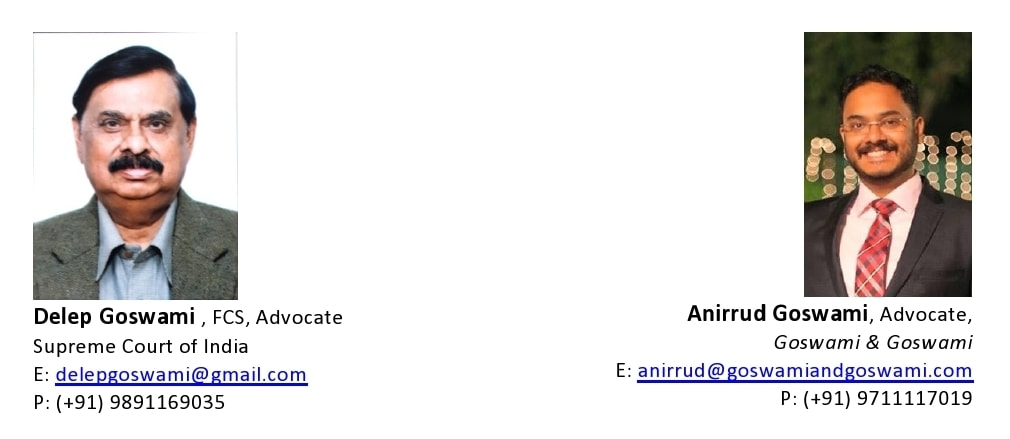




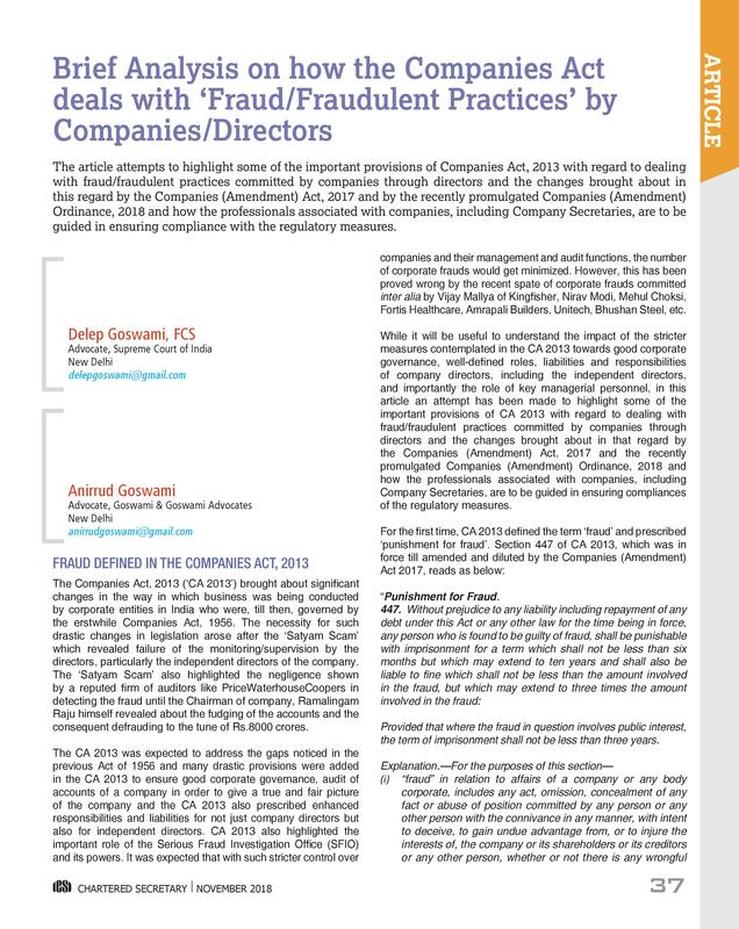
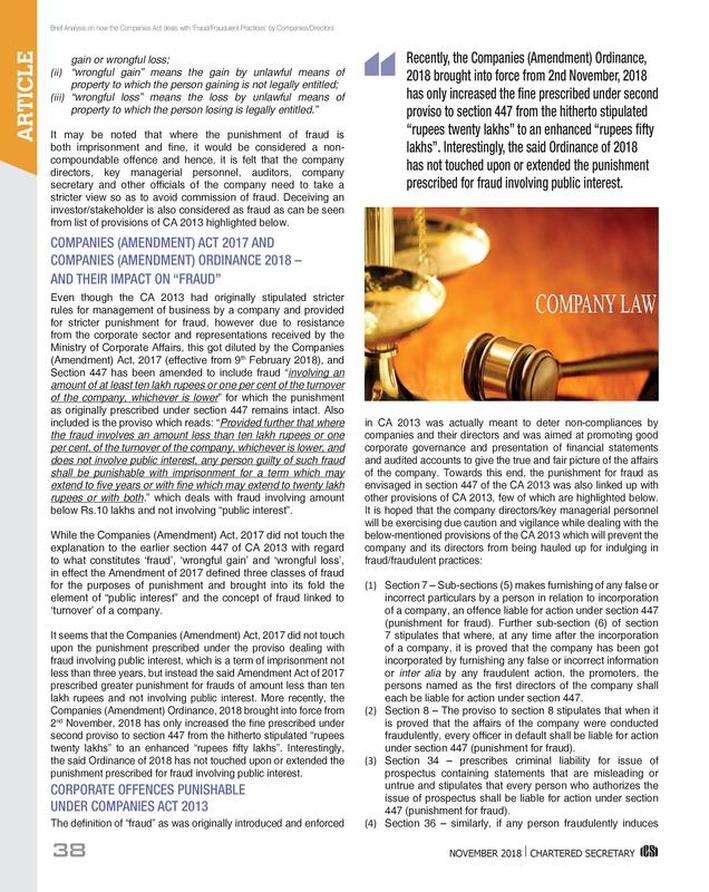
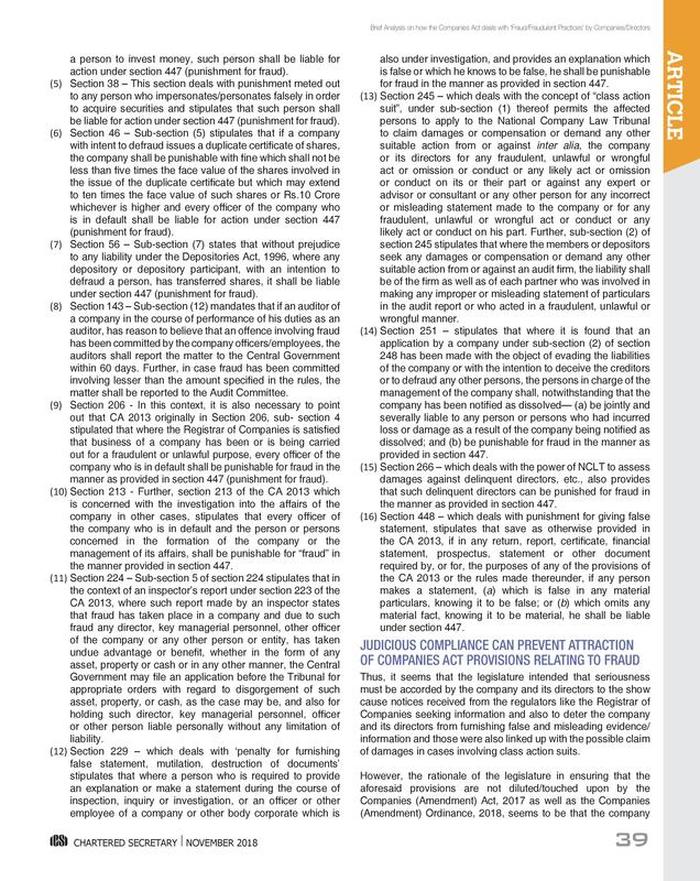
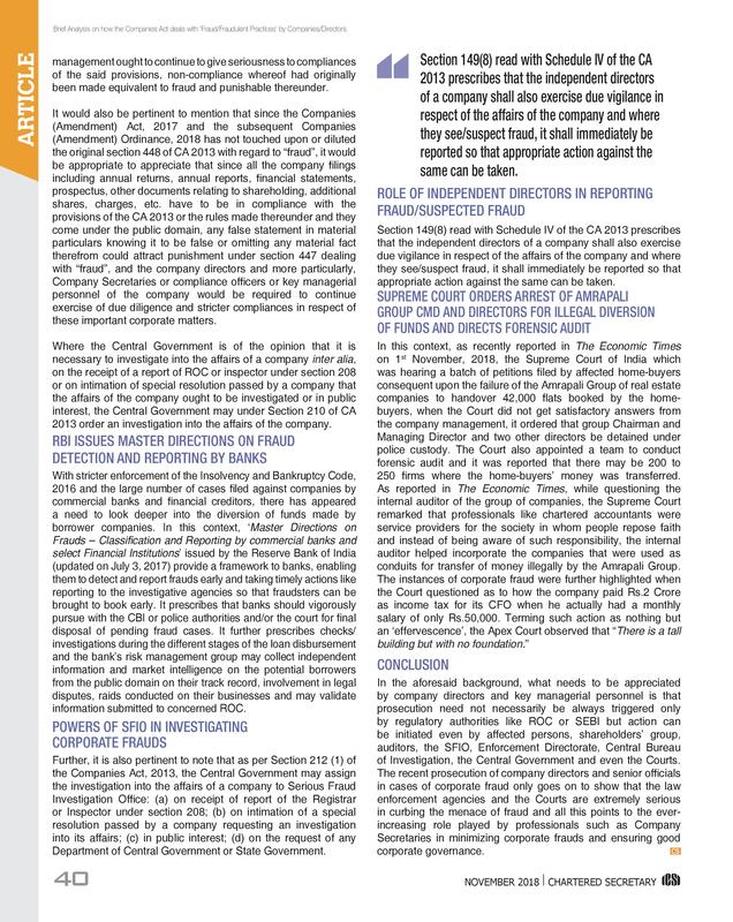
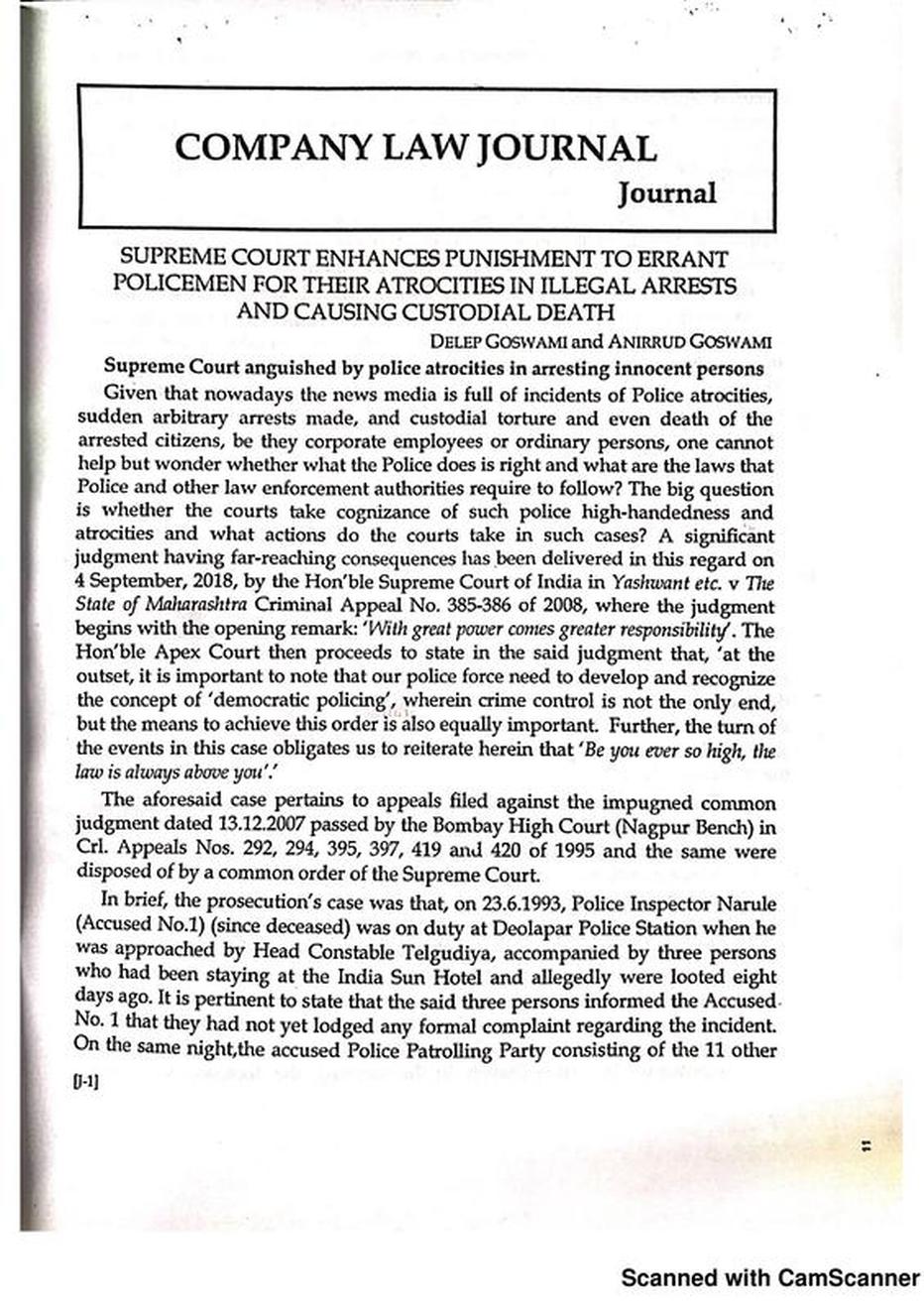
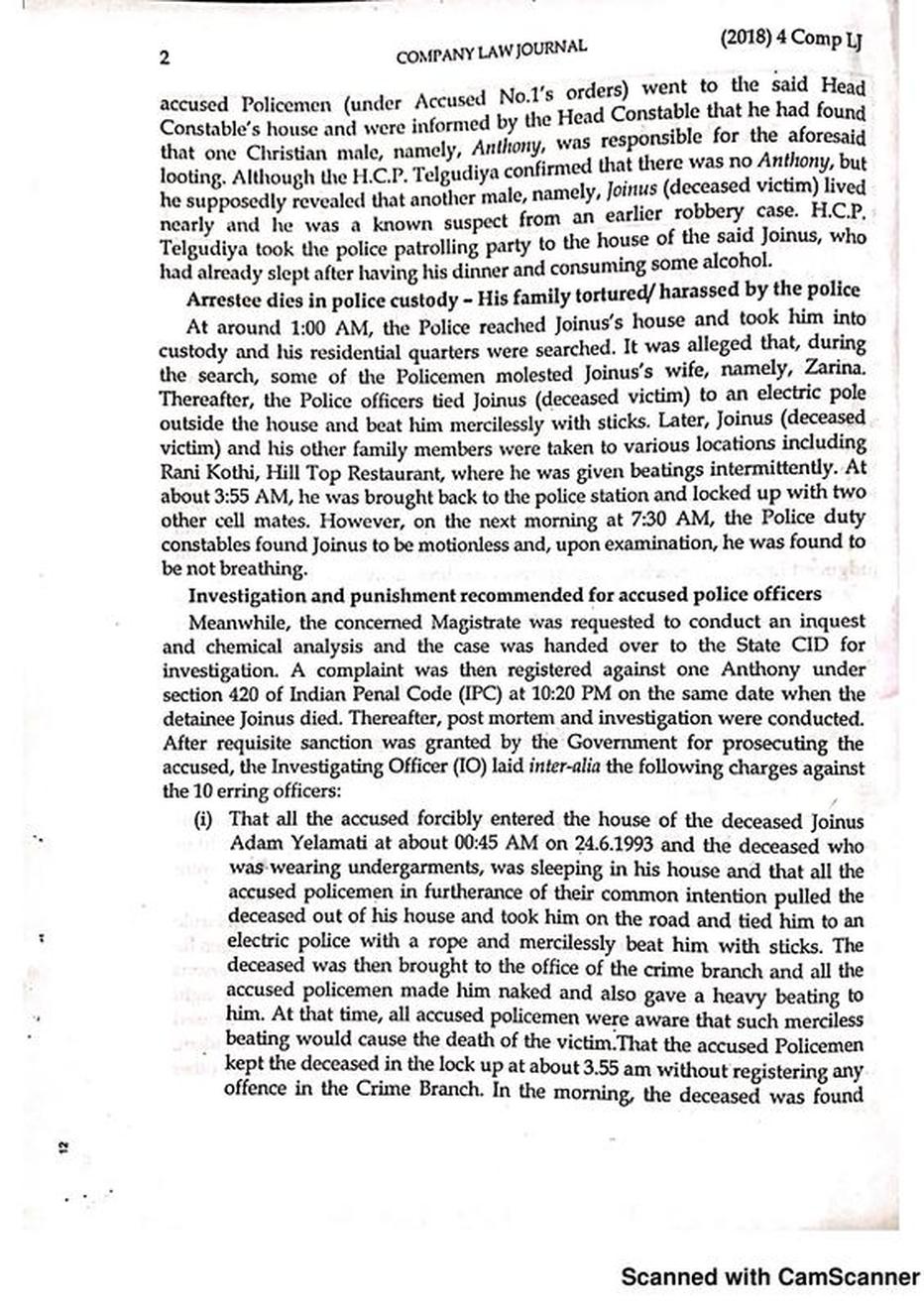
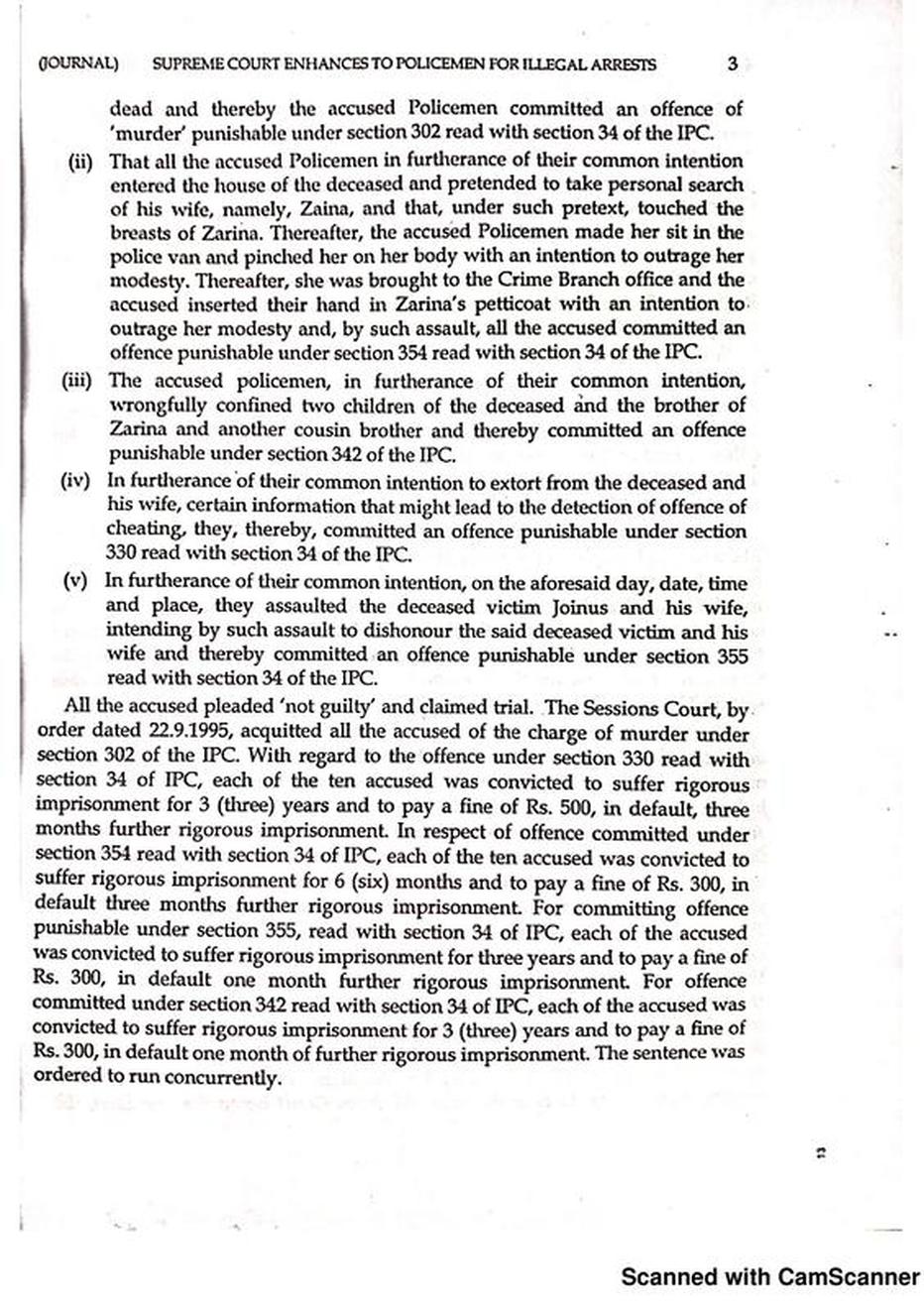
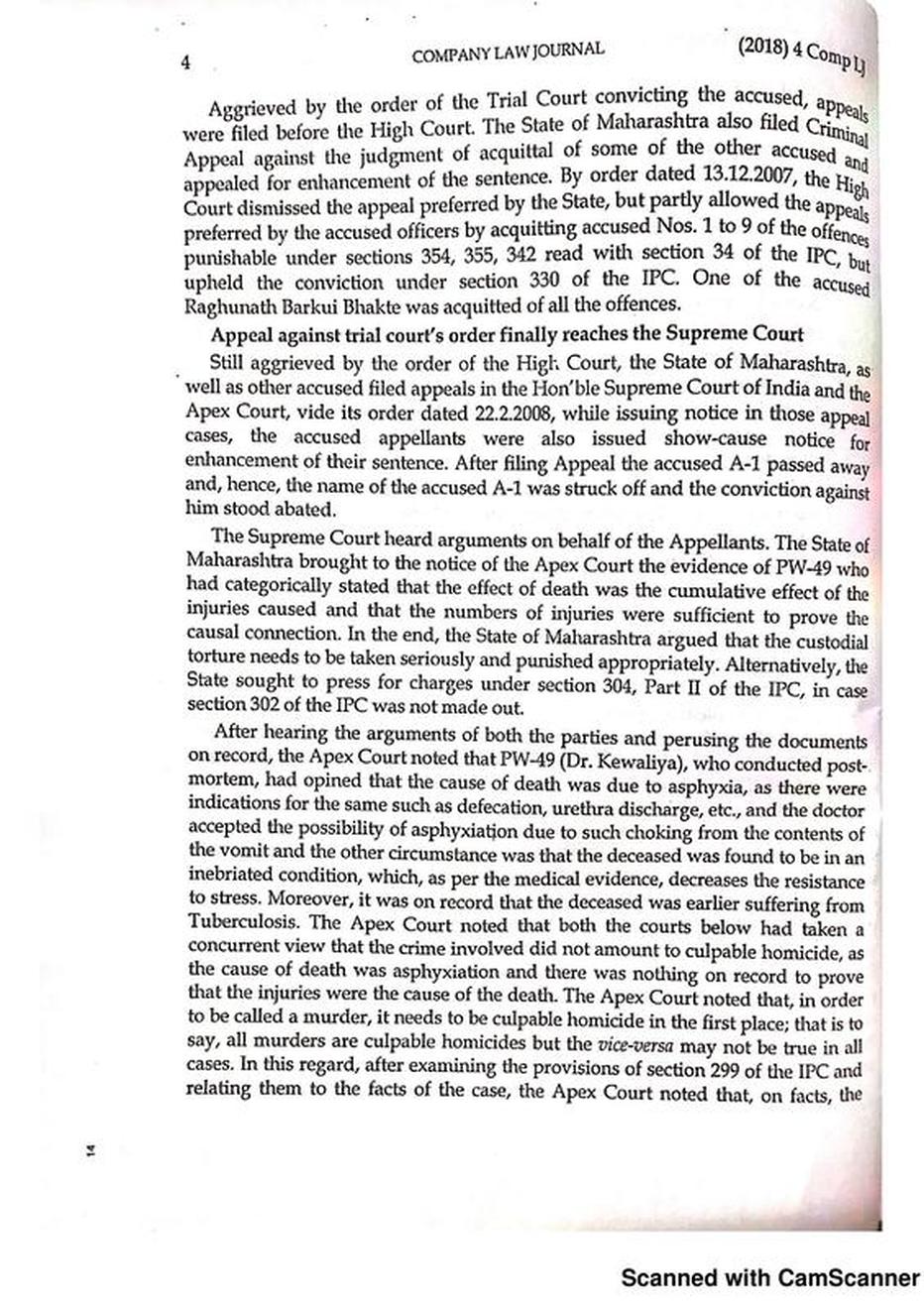
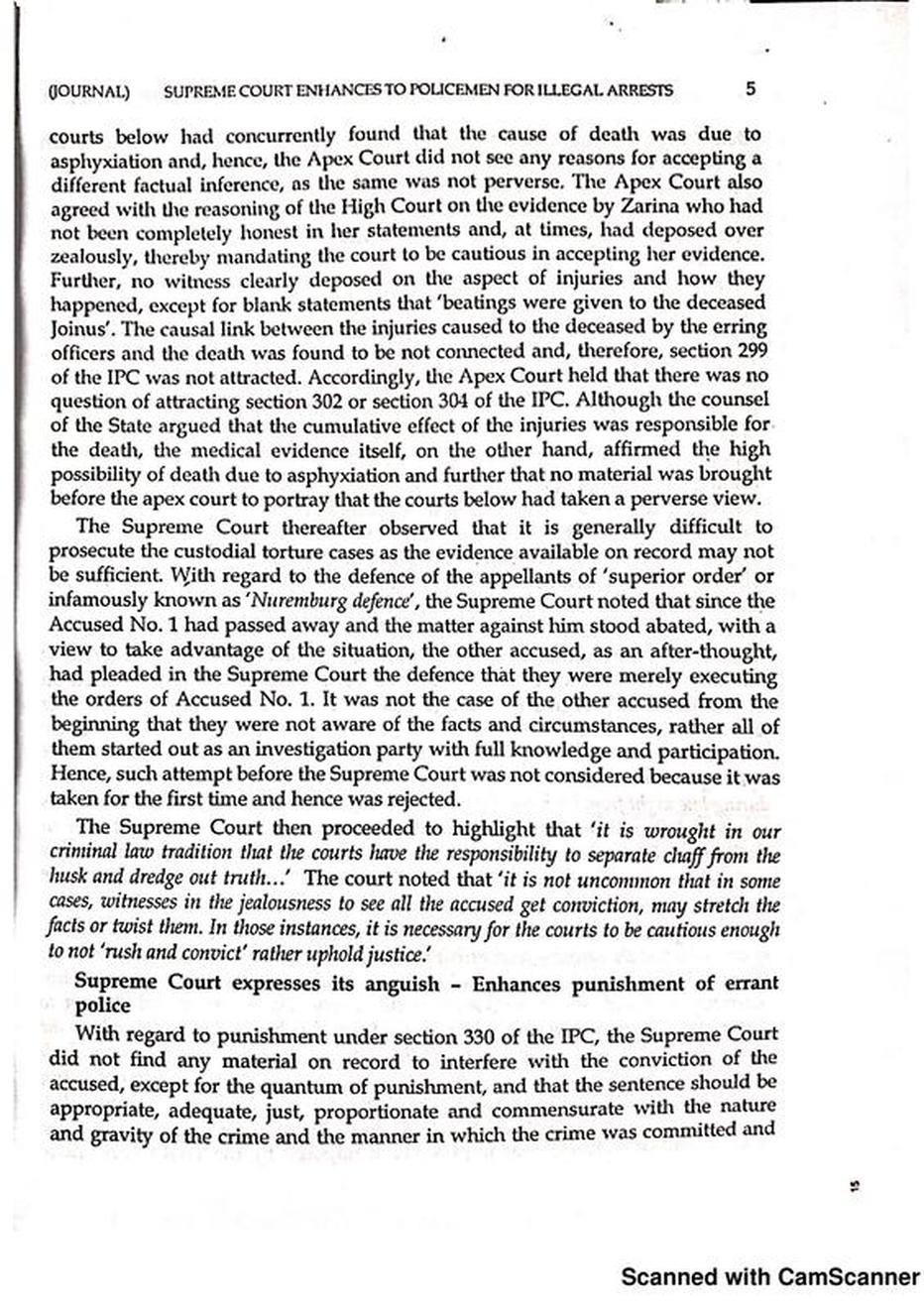
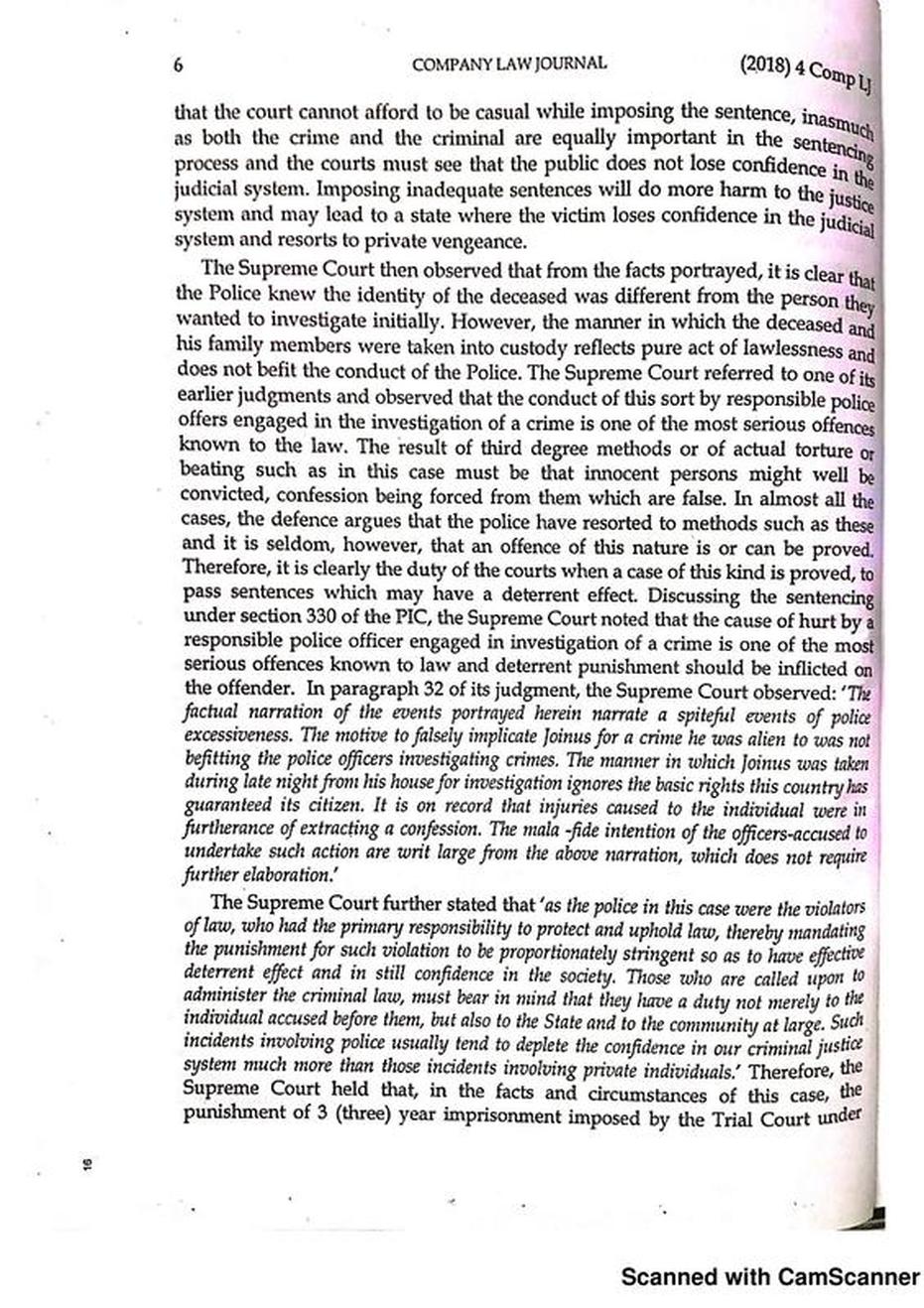
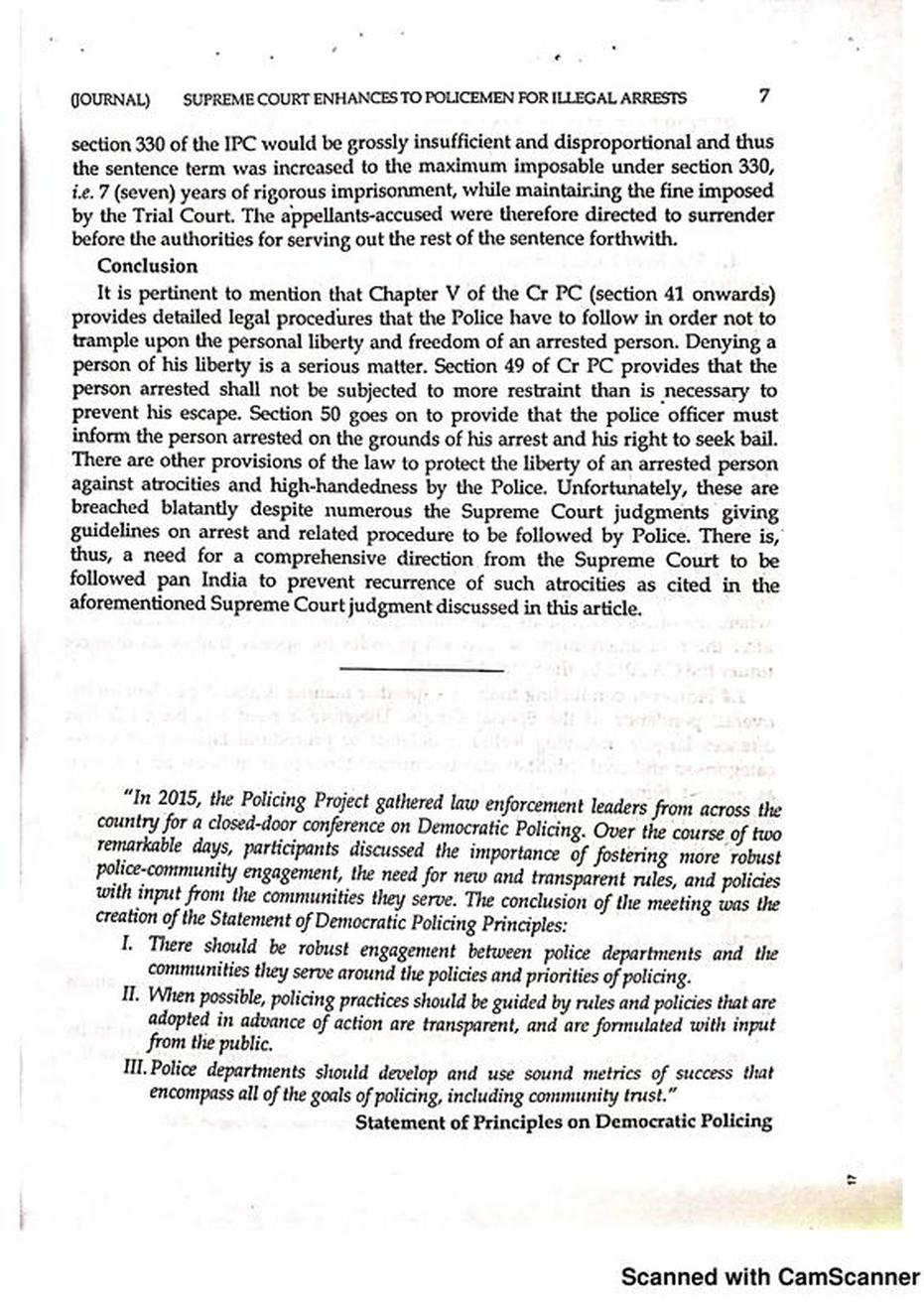




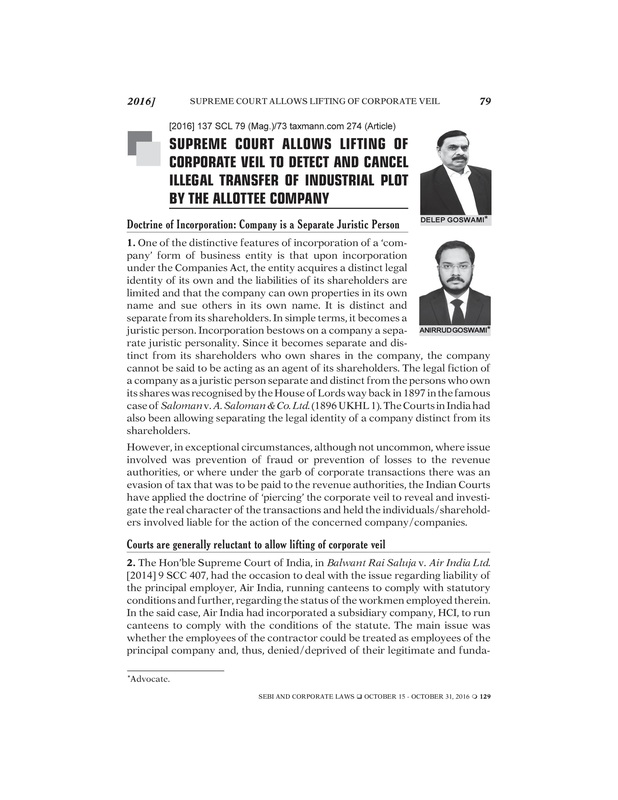
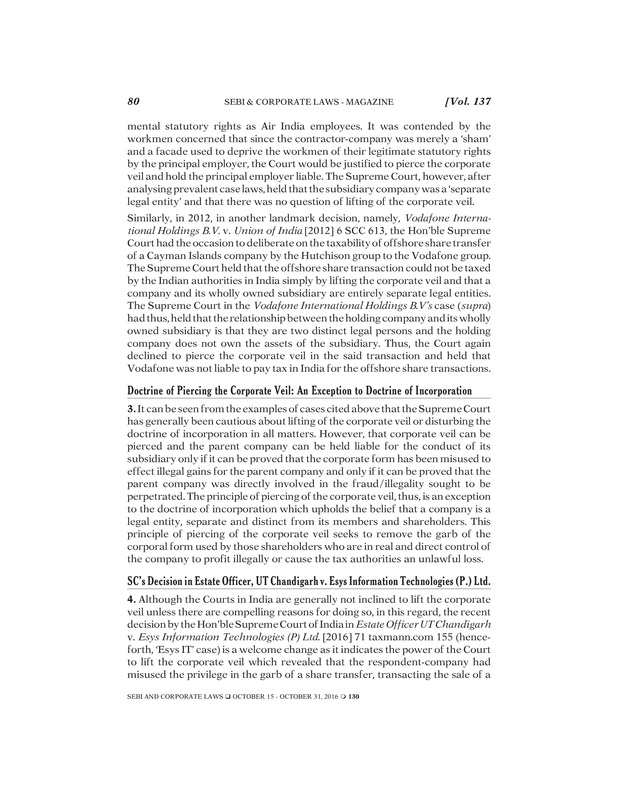
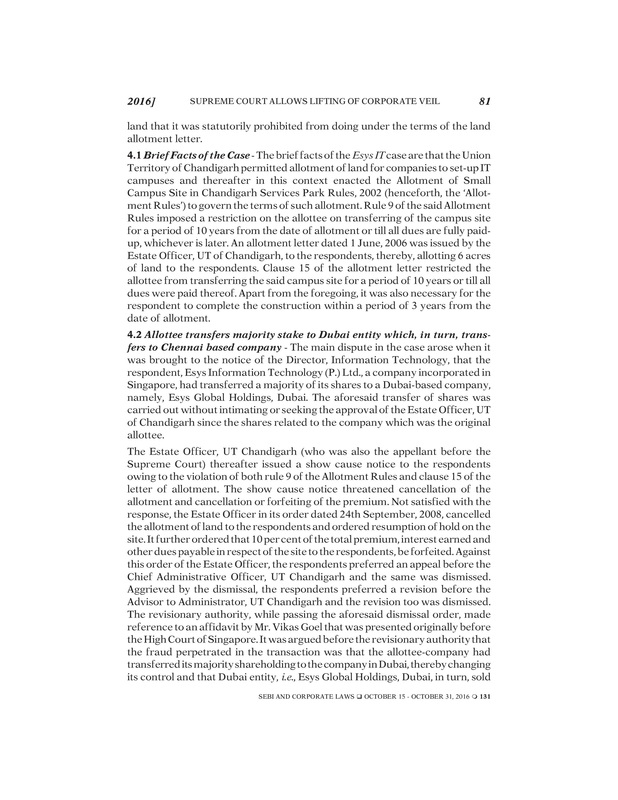
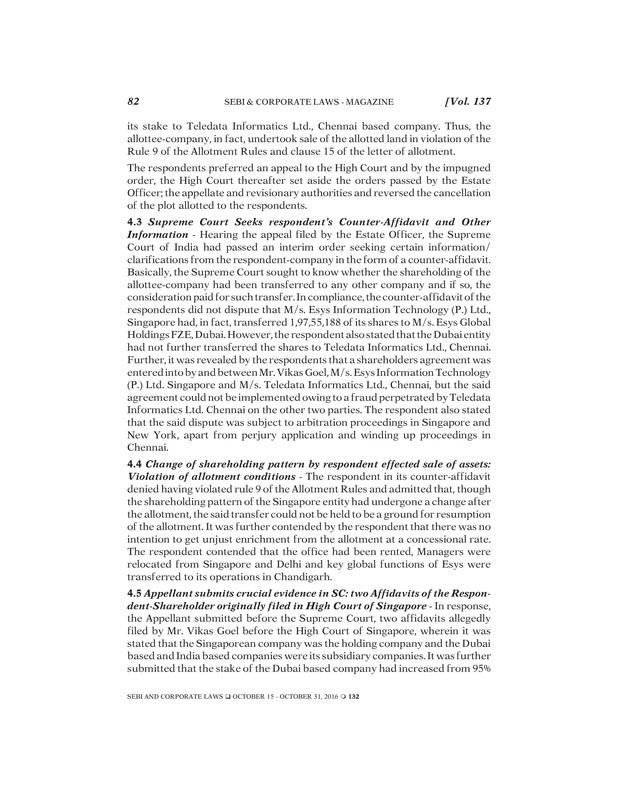
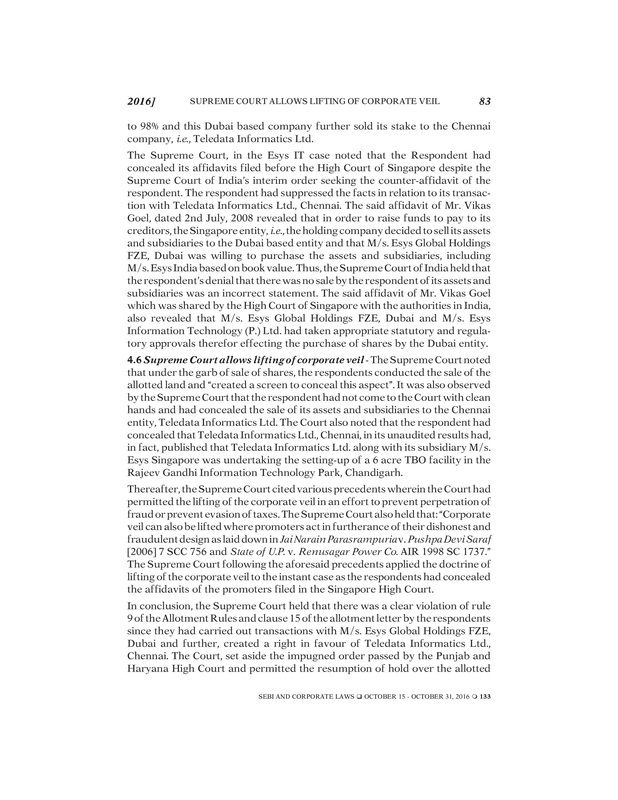
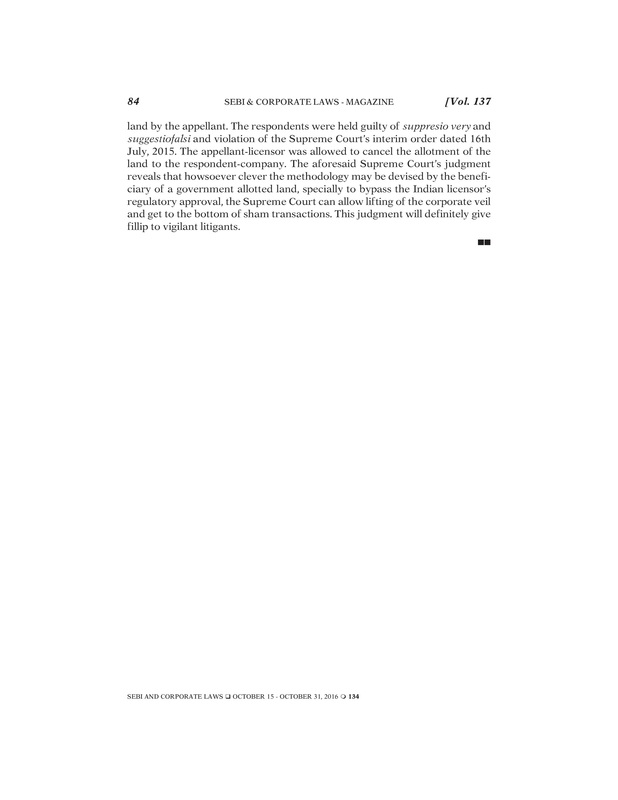
 RSS Feed
RSS Feed
